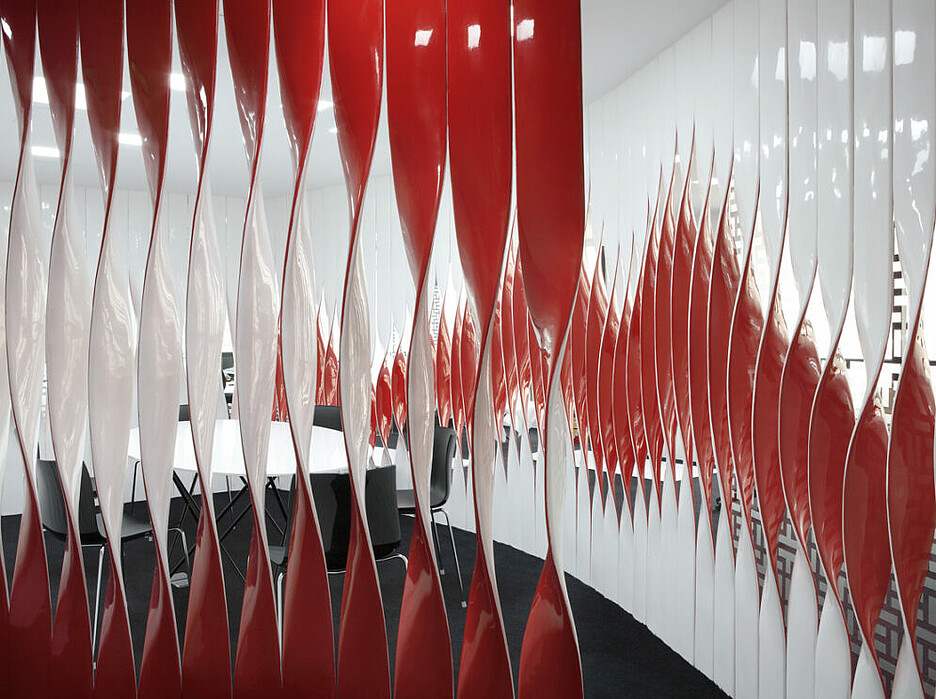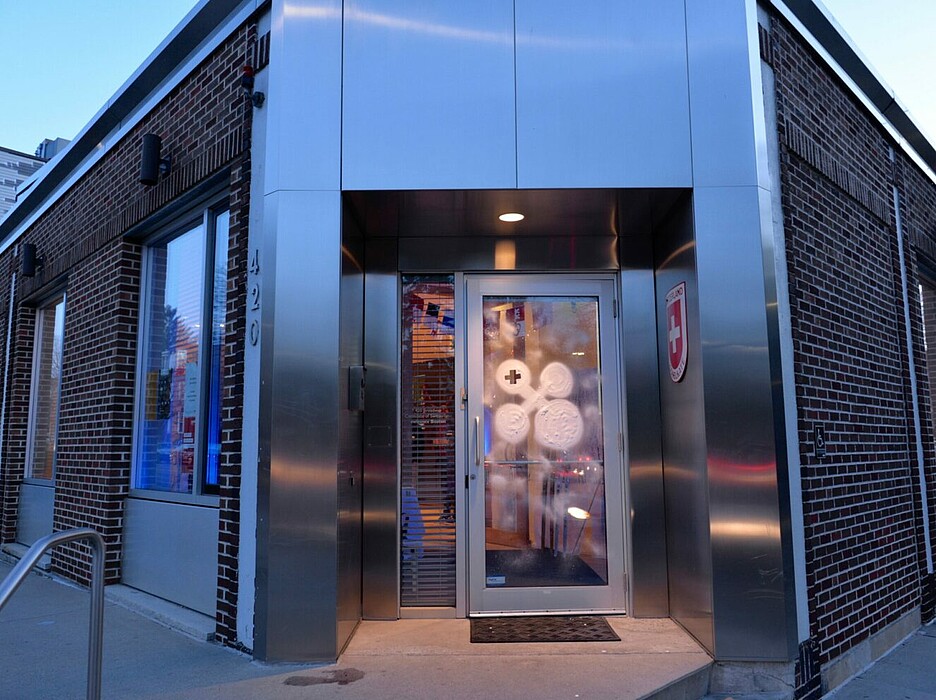
Exchanges at university and innovation hotspots with Swissnex
The ZHAW-Swissnex staff mobility programme provides tailor-made exchange opportunities with important international university and innovation hotspots. This is important for research and the successful internationalisation of the ZHAW.
The internationalisation of universities has become increasingly important in recent years, and this is no different for the ZHAW. The word “international” appears no fewer than 18 times in the ZHAW University Strategy 2015–2025, for example. In particular, this involves positioning the ZHAW as a globally active player whose staff are internationally and interculturally competent. The ZHAW has been working together with the Swissnex initiative of the State Secretariat for Education, Research and Innovation since as far back as 2013. The aim of Swissnex is to support Swiss universities and individual researchers as well as start-up companies in their international networking. To this end, it offers access to a broad network, acting as a kind of academic consulate at five global locations. The mobility programmes are adapted to the interests or objectives of the institutions. This means that the ZHAW designs programmes for its employees together with Swissnex.
At the interface between education, research and innovation
Those who participate in the ZHAW-Swissnex staff mobility programme can benefit from the network and knowledge of the Swissnex locations. These support participants during the preparation and specific planning of a stay as well as during the exchange itself. They help in identifying and referring relevant contacts, for example in putting together the programme or by providing positions. By sharing its regional networks and knowledge of the respective university ecosystem, Swissnex allows participants to access information on the regional specifics that exist in the respective subject area or field of interest. The initiative works at the interface between education, research and innovation. It places emphasis, in particular, on supporting its partners, for example the ZHAW, and the “end users,” i.e. ZHAW employees, during the early research and development stages as well as in the pre-commercial phase. The focus of the stay can be a research project, further training or a teaching assignment, for instance.
In the case of Anita Manser Bonnard, Head of Continuing Education at the Institute of Health Sciences (IGW) of the ZHAW School of Health Professions, for example, it was the development of a new degree programme, namely the MAS in Physician Associate Skills, that was the focal point of her Swissnex staff mobility stay. There is a specific reason why she chose Boston & New York as her destination: “In English-speaking countries, the role of physician associate (PA) has been around since the 1960s. This function was introduced in the surgery department of Winterthur Cantonal Hospital in 2016, and the Institute of Health Sciences was asked to develop a continuing education course on this subject for experienced health professions. As a university city, Boston offers training for PAs at various locations. I wanted to get to know them, exchanging views on how the function is performed in practice and how the training and continuing education courses are structured.” She particularly emphasises the exchange of experiences with the lecturers. This provided her with many ideas that she was able to incorporate in the development of the new continuing education programme, says Manser Bonnard.
International input for work at the ZHAW

In addition to Boston & New York, Swissnex also operates four other locations in the world’s most innovative regions. Alongside two locations in the US, it also has sites in Brazil, China and India, with a further location in Japan also to follow soon. In China, Swissnex is present in Shanghai. It was here that Jan-Alexander Posth, a senior lecturer at the Centre for Asset Management of the ZHAW School of Management and Law, found himself in 2019 thanks to his exchange as part of the ZHAW-Swissnex staff mobility programme. His academic work focusses on sustainable finance. “The major problems of our time, such as climate change, environmental pollution and the loss of biodiversity, are global in scale and as such can also only be understood and resolved in a global context,” he opines. “Especially in the area of ESG, i.e. environmental, social and corporate governance at companies, and sustainable finance, it was therefore very important to me to experience the perspective of the global player China first hand.”
“My Swissnex visit to Shanghai and Beijing helped me to gain a broader and more integral understanding of the issues,” says Posth. Specifically, the stay helped him to define his research focus more clearly. “At the same time, I am now able to better integrate my research in the area of sustainable finance into a global context. This has seen completely new and essential facets of my work emerge.”
“When I do research with people from outside Switzerland, everyday practices are questioned.”
Patrick Studer, Head of the Language Competence and Knowledge Development Research Area at the ZHAW School of Applied Linguistics, also sees gaining new perspectives of your own work as a major benefit of international exchanges. “I work intensively with colleagues from different European countries and even further afield. When conducting research in your own cultural sphere, you often find yourself blind to your own shortcomings. There are academic and social discourses on research topics that influence the research agenda. When I do research with people from outside Switzerland, everyday practices are questioned and renegotiated. I like this,” he says.

His research visit took him to Boston & New York, the second Swissnex location in the US after San Francisco. Here, he established a research contact at the Center for International Higher Education at Boston College as part of a research and exchange project on the internationalisation of universities (project title: “High-impact measures for the comprehensive internationalisation of curricula in Switzerland”). This visit was not actually part of the project plan, but it enabled him to make additional contacts, says Studer. For example, to the centre’s director at the time. “This contact in turn led to an extended visiting scholarship at Boston College. However, due to the situation with COVID-19, I was unfortunately unable to make intensive use of this. I would very much like to plan a longer research stay in Boston in the future.”
A win-win situation for employees and the university
Even though Patrick Studer has not yet been able to return to Boston due to the coronavirus pandemic, his example clearly demonstrates the added value that the staff mobility programme has not only for him personally, but also the entire ZHAW. His stay and the new contacts that he established there also laid the foundation for a lasting cooperation between the ZHAW and Boston College and its Center for International Higher Education. Other ZHAW researchers, for example, are now able to benefit from this, as well as the university as a whole. This is the case, for instance, when it comes to further internationalising the curricula, with external experts to be brought in for this purpose. By developing new collaborations with partners from the world of practice, establishing contacts for research projects, exchanging ideas with their international scientific communities and creating exchange opportunities for students during their stay abroad, for example, participants in the staff mobility programme contribute to the international networking of their Schools or organisational units and ultimately to the internationalisation of the ZHAW.
Universities of applied sciences are very attractive for international partners
Last but not least, these contacts increase the profile of the ZHAW and universities of applied sciences as institutions of higher education, thus helping to establish them in a global academic environment. “Swiss universities of applied sciences are often very attractive for their international partners, as they have close links to industry and focus on training their graduates in line with market requirements,” says Roman Kern, Interim Head of Unit at Swissnex. However, the challenge lies in providing international partners with a solid understanding of the strengths and quality of Swiss universities of applied sciences. Kern explains in turn that this also has to do with Swiss modesty.
Basis for exchanges, collaborations – and progress
We often find it difficult in this country to speak with pride and confidence about our excellent institutions. “However, when international partners come into direct and more in-depth contact with Swiss universities of applied sciences, for example as part of research collaborations, they are impressed by the excellence of these institutions and see them as valuable and trustworthy partners.” In performing its work, Swissnex not only makes an important contribution as an intercultural bridge-builder in its role as a mediator of networks, but also puts in place foundations for the internationalisation of universities and the training of international skills for their employees by creating a valuable basis for successful exchanges and rewarding collaborations. If, in turn, new research approaches and findings emerge from this, this is not only relevant for the researchers themselves, but rather also results in added value for society as a whole.
Swissnex
The first Swissnex office was opened in Boston in 2000. Over the last 21 years, the number of locations has grown to five – Bangalore (India), Boston & New York and San Francisco (US), Rio de Janeiro (Brazil) and Shanghai (China) – with a sixth set to be added in spring 2022 with Osaka (Japan). Together with around 20 science sections and science councils at Swiss embassies, Swissnex strengthens Switzerland’s image as a hotspot for research and innovation. The value and benefits of Swissnex for Swiss universities are based on various aspects. One is networking with successful university ecosystems around the globe, for example through the arrangement of international partnerships between researchers for research projects or the provision of support in finding partner universities. Swissnex informs the universities about current trends in education, trends in university education such as blended learning and the emergence of MOOCs (massive open online courses), while also offering support with discipline-specific visits. Furthermore, Swissnex contributes to enhancing the visibility of Swiss universities worldwide and inspires new ideas by promoting the exchange of knowledge. It also offers strategic services for Swiss universities that are no longer only geared towards internationalisation, but rather a steady transformation of the Swiss university sector. The objective is to secure the sector’s excellence, future viability and competitiveness in the long term. This means, for example, that Swissnex supports universities in implementing their strategic priorities. This may involve the creation of new offerings such as the Collaborative Online International Learning (COIL) experience for students, which facilitates an international mobility experience with a strong focus on learning outcomes – even at times when travel isn’t possible.
0 Comments
Be the First to Comment!